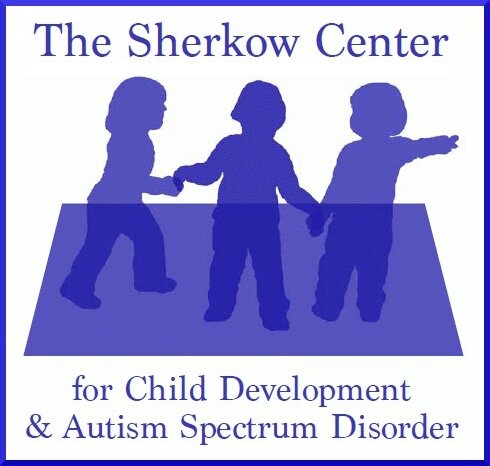By Carlotta Bettencourt
Meet Cameron, one of our 9-year-old youngsters from The Sherkow Center.
Cameron was diagnosed at the age of 2 with Autism Spectrum Disorder (ASD). Fortunately, Cameron received early and intensive treatment at a critical time. In 2002, Cameron and his mother began working with Dr. Susan Sherkow in dyadic therapy. At the age of 3, Cameron presented as a very friendly, intelligent and charming child. He nevertheless struggled with many developmental difficulties, including issues with language, social and emotional development.
The Sherkow Center’s therapeutic approach not only facilitated an opportunity for a mother/child bond to develop, but also allowed the mother to begin understanding her son’s internal world and behaviors; what caused Cameron’s meltdowns every time he would play with his brother or with other children?
At the age of 6, while still continuing his intensive individual therapy with Dr. Sherkow, Cameron joined the Spark Social Skills Group at The Sherkow Center.
By this time, Cameron’s language, behavior, and stimming/flapping had significantly improved: as a result of his treatment, Cameron’s diagnosis became less visible and less problematic.
However, Cameron was still struggling with temper tantrums and outburst of aggression towards family, peers and occasionally his therapist. Dr. Sherkow identified the significance of the underlying meaning of his problems across certain domains, such as self- regulation, performance anxiety, and finally sibling rivalry.
Dr. Sherkow and the Spark Team worked on improving these persistent issues following The Sherkow Center’s Method, by continually addressing Cameron’s needs and goals with a similar approach in every setting.
Cameron’s difficulty with performance anxiety seemed to have a negative impact on the way he related to, interacted with and played with others. This translated into a constant source of inner anxiety about competition, which inevitably affected his ability to play.
This internal conflict took shape in several ways: whether at school, at Spark group or during individual therapy, Cameron would act out by changing the game’s rules, controlling who the winner or loser would be, and having significant temper tantrums. This was especially true whenever he felt not in charge, unconsciously contradicted or overwhelmed with his emotions and anxieties.
Eventually, Cameron began developing his own skills at school and showed a talent for writing, reading and sports. This allowed him to discover and develop his natural abilities so that he could now safely feel self-confidence and thus capable of being his own independent person.
Cameron did not have the need to corrupt the games anymore. He could now be flexible about any game, while still working on regulating his anxiety about the competition and the other players. He enjoyed participating, rather than obsessing about who the “best player” was. Clearly, Cameron had reached a developmental milestone; he knew he could trust himself and feel like a valuable participant, whether he won or lost, because he could accept himself as a person with both talents and flaws.
On September 10th 2019, during an individual session with Dr. Sherkow, Cameron set up an elaborated mock tournament with superheroes, of all shapes and sizes. At the end of the intense battle, there was only one winner. He then placed all the superheroes figures in a circle and put the “winning” figure in the middle, with its arms in the air in celebration of his victory. Dr. Sherkow engaged Cameron by putting words to his actions and talked about the other superheroes’ “feelings” as well as the winner’s. Cameron concluded his thoughts by saying:
“The Phoenix is the champion, but they are all winners anyway!”
Cameron’s comment here portrays the successful internalization of his issues around competition and performance anxiety, he has now reached a new level of awareness and maturity.
Since he was able to resolve this internal conflict, it did not matter to him who won or lost.
Cameron’s statement speaks highly of the tremendous progress he has made throughout his treatment at The Sherkow Center and highlights the fact that developmental difficulties associated with ASD can be overcome.

